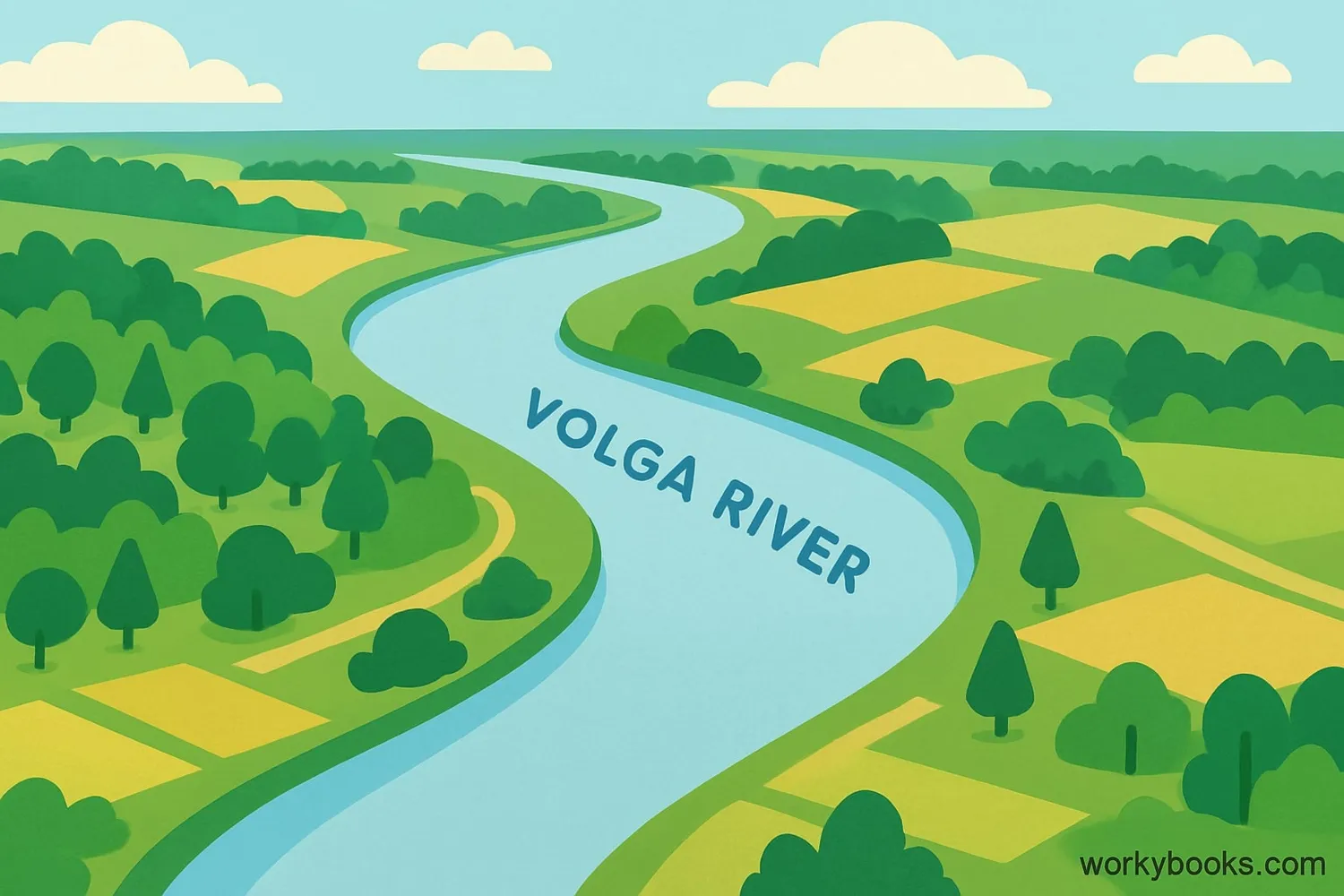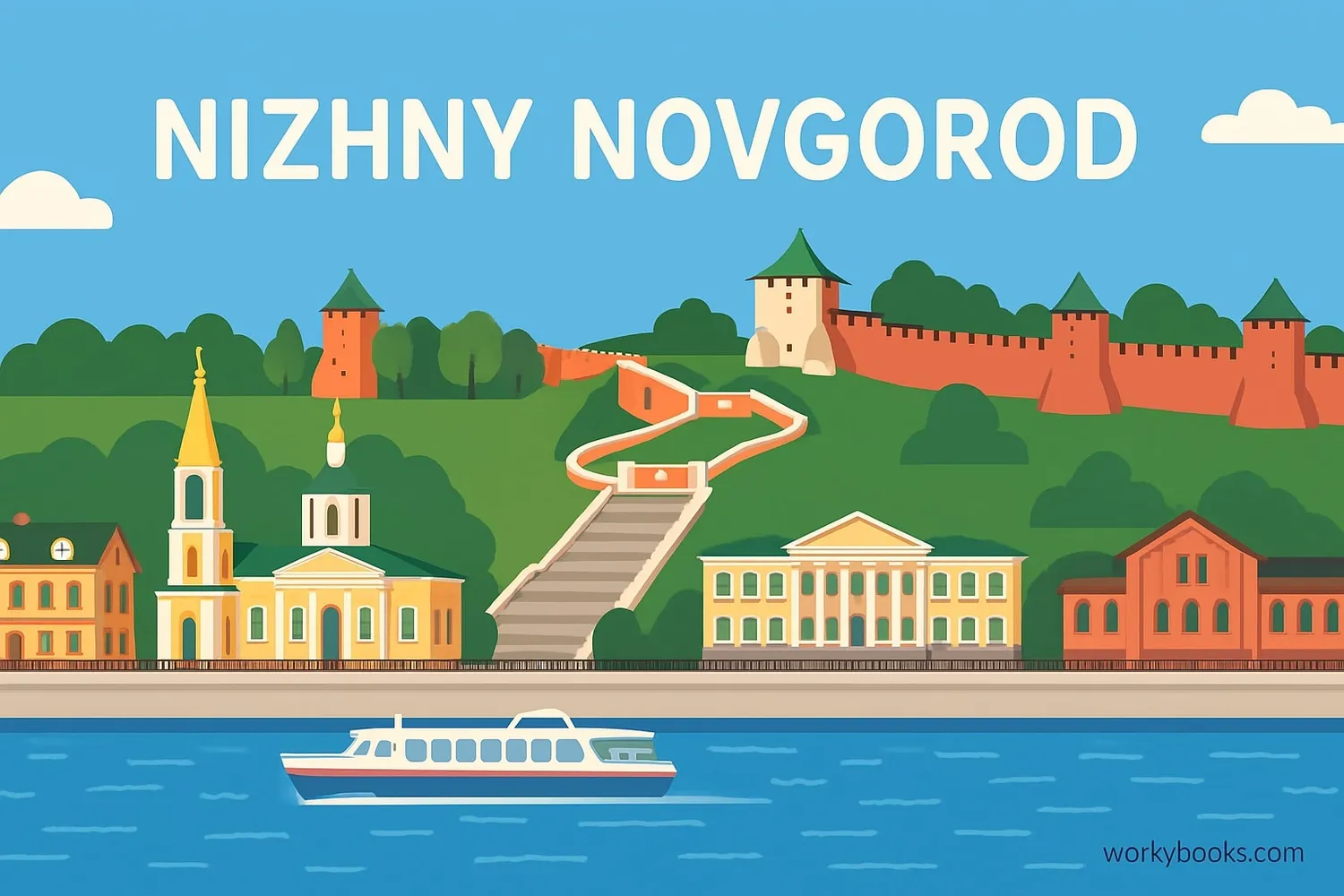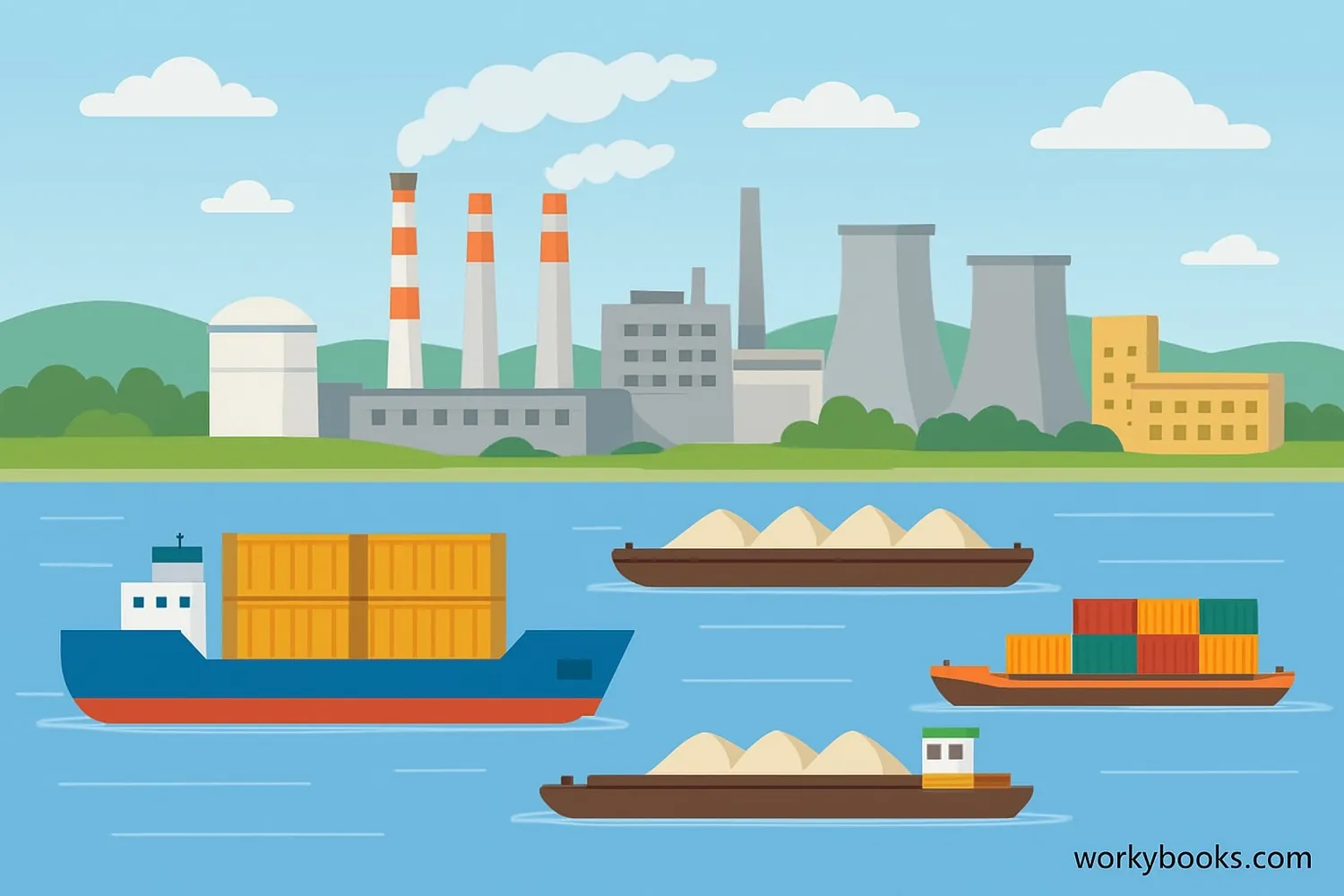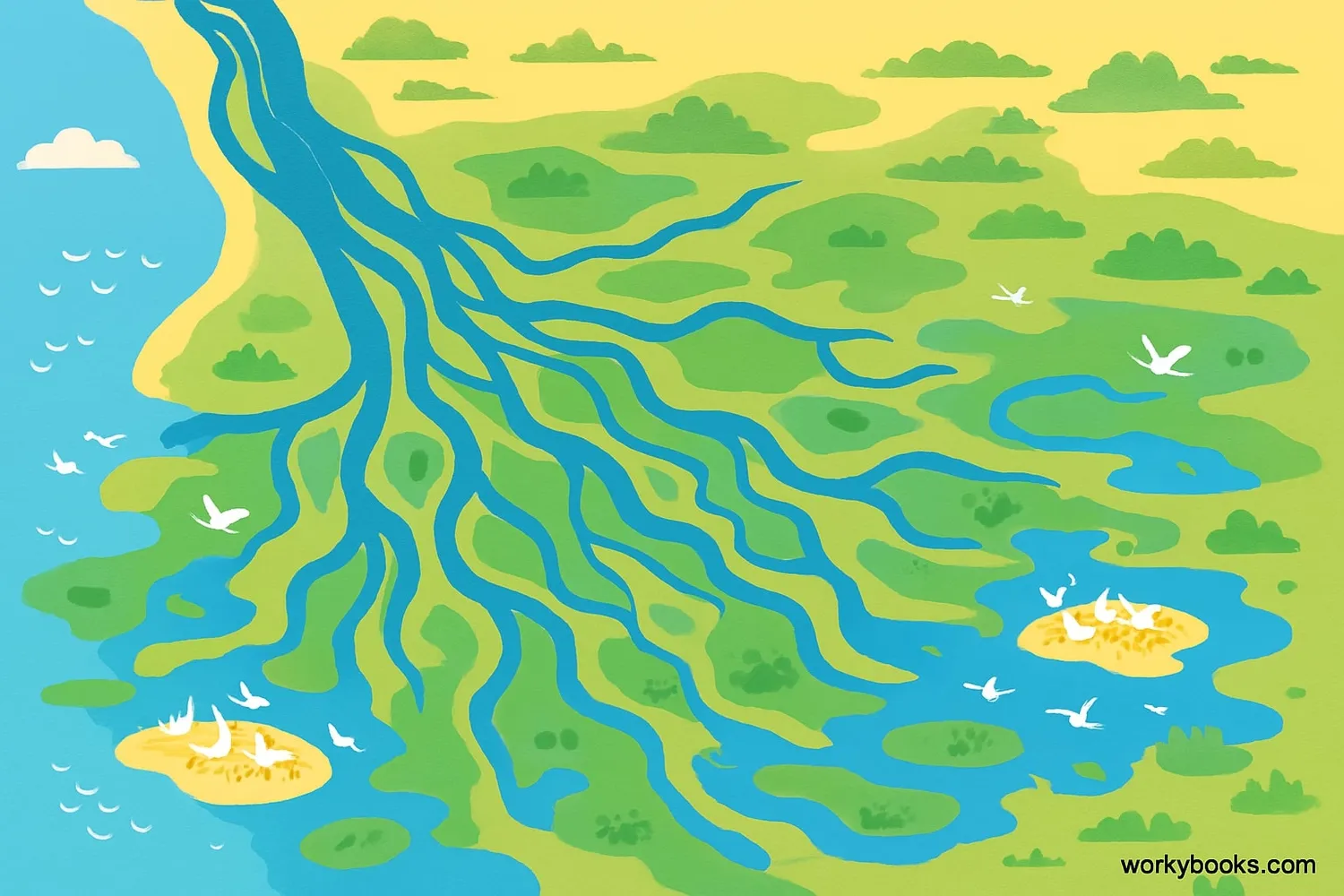The Volga River - Definition, Examples, Quiz, FAQ, Trivia
Europe's longest river and Russia's national treasure
What is the Volga River?

The Volga River is the longest river in Europe, flowing through western Russia. At 3,530 kilometers (2,193 miles) long, it's longer than the distance from New York to Los Angeles! The Volga starts in the Valdai Hills northwest of Moscow and flows south into the Caspian Sea.
For Russians, the Volga is known as "Matushka Volga" (Mother Volga) because it has been so important throughout history. It flows through 11 of Russia's 20 largest cities and provides water to millions of people. The river basin covers about 40% of European Russia.
River Fact!
The Volga carries more water than any other river in Europe - about 8,000 cubic meters per second!
Length
3,530 km (2,193 miles)
Source
Valdai Hills, 225 meters above sea level
Mouth
Caspian Sea, 28 meters below sea level
Countries
Flows entirely within Russia
Geography & Map
The Volga River flows through diverse landscapes on its journey across Russia:
Upper Volga
Begins in forested hills, flows through lakes and reservoirs
Middle Volga
Widens significantly, flows through agricultural regions
Lower Volga
Enters dry steppes before forming a massive delta
The river has more than 200 tributaries, with the Kama River being the largest. The Volga is connected to other major rivers through the Volga-Baltic Waterway and Volga-Don Canal, making it part of an extensive transportation network.
Important Cities

The Volga River flows through many important Russian cities that developed along its banks. These cities became centers of trade, industry, and culture:
Nizhny Novgorod
Russia's fifth-largest city with a historic Kremlin overlooking the river
Kazan
Capital of Tatarstan with a unique blend of Russian and Tatar cultures
Samara
Major industrial center with a long riverfront promenade
Volgograd
Formerly Stalingrad, site of the famous WWII battle
Astrakhan
Located in the Volga Delta near the Caspian Sea
River Cruises
Many tourists take river cruises along the Volga to visit these historic cities and see the Russian countryside.
Economic Importance

The Volga River has been Russia's most important waterway for centuries. Today it remains vital to the country's economy:
Transportation
Carries about 50% of Russia's river freight including oil, grain, and machinery
Hydropower
Dams generate electricity for millions of people
Water Supply
Provides drinking water and irrigation for agriculture
The river is connected to other waterways through canals, allowing ships to travel from the Caspian Sea to the Baltic Sea and even to the Black Sea. This makes the Volga part of a transportation network that connects many parts of Russia.
Ecosystem & Delta

Where the Volga meets the Caspian Sea, it forms Europe's largest river delta - a vast wetland area covering over 27,000 square kilometers (10,000 square miles). This unique ecosystem is home to:
Biodiversity
Over 1,000 plant species and 283 bird species
Sturgeon
Home to beluga sturgeon that produce valuable caviar
Migratory Birds
Important stopover for millions of migratory birds
Unfortunately, the Volga faces environmental challenges:
Pollution: Industrial waste, agricultural runoff, and sewage have contaminated the river
Overfishing: Sturgeon populations have declined dramatically
Habitat Loss: Dams have altered natural river flows and ecosystems
Conservation efforts are underway to protect this vital river system for future generations.
Volga River Quiz
Test your knowledge about the Volga River with this quiz! Answer all 5 questions to see how much you've learned.
Frequently Asked Questions
Here are answers to some common questions about the Volga River:
Volga River Trivia
Discover some fascinating facts about the Volga River:
Ancient Trade Route
For centuries, the Volga was part of the trade route connecting Scandinavia with the Caspian Sea and beyond to Persia and Central Asia. Viking traders used this route as early as the 8th century.
Massive Reservoirs
The Volga has 8 massive reservoirs created by dams, which together form the largest chain of artificial lakes in the world. The largest is the Rybinsk Reservoir, covering 4,500 km².
Cultural Inspiration
The Volga has inspired countless Russian artists, writers, and composers. The famous folk song "The Song of the Volga Boatmen" reflects the river's importance to Russian identity.
Bird Paradise
The Volga Delta hosts the largest population of lotus flowers outside of Asia. It's also home to the rare Dalmatian pelican, with the delta hosting one of Europe's largest breeding colonies.





